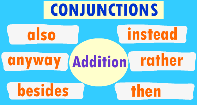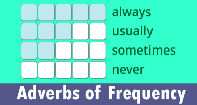×
Change Avatar
Adverbs of Confirmation and Negation
console:
Adverbs of Confirmation and Negation

Adverbs of confirmation and negation give certainty to the verb or the opposite, indicating a judgment, a statement, or an intelligent proposal. They serve to reinforce the action in the sentence as certain or uncertain, true or untrue.
Here are some examples:
| CERTAINLY | We will certainly finish this project. |
| NEVER | We will never finish this project. |
Here is a list of common Adverbs of Confirmation and then Adverbs of Negation, and examples of each:
| ADVERB OF CONFIRMATION | EXAMPLE |
|---|---|
| certainly | She will certainly win the award. |
| clearly | Clearly, she is going to finish first. |
| definitely | I will definitely be there tomorrow. |
| exactly | It is exactly three o’clock. |
| really | She really is the most tired. |
| truly | They truly felt sorry for having lied. |
| very | We are very glad to come. |
| ADVERB OF NEGATION | EXAMPLE |
|---|---|
| any | I don’t have any idea when she left. |
| hardly | We hardly have any sugar left. |
| never | We are never going to paint this house. |
| no | There is no room for error. |
| not | We are not on track for this project. |
Note: Words made into contractions with “not” can also be adverbs of negation, such as haven’t or don’t, but can be hard to identify in a sentence without seeing the “not.” Remember what these contractions are made from:
HAVE + NOT = HAVEN’T
DO + NOT = DON’T
Similar Games










